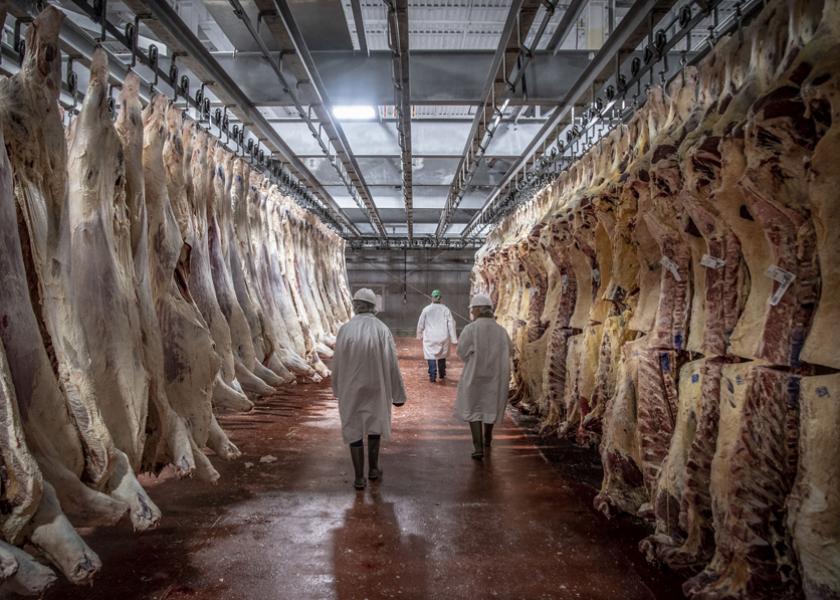Funding for Processors Continues into Summer 2022

On Friday, USDA shared the launch of the Meat and Poultry Processing Capacity Technical Assistance Program (MPPTA), available to applicants involved with the Meat and Poultry Inspection Readiness Grant (MPIRG) program and the Meat and Poultry Processing Expansion Program (MPPEP).
The MPRIG and MPPEP follow a slew of USDA announcements delivered under the American Rescue Plan Act in 2021 to foster a fair, competitive and resilient meat supply chain.
Rep. Cindy Axne (D-IA) and USDA Under Secretary Jenny Lester Moffitt joined forces in Des Moines, Iowa, on Friday to host a roundtable regarding the processor progress.
The need for market competition and transparency in farm country is more apparent than ever, Axne says. The grant program will not only help the processors in rural communities, but she says it will also provide producers “more options, ensuring a fair price for their cattle.”
Moffitt says her main objective is to ensure all producers have access to USDA dollars and programming.
“We know meat and poultry processing is a tough industry to break into. There are lot of complexities and it’s important to complete the pre-application process the right way,” she says. “We see there’s a need for qualified technical expertise to capture the projects for producers and MPPTA will address that need.”
A total of three technical assistance locations have been negotiated at Oregon State University’s Niche Meat Processor Assistance Network, the Flower Hill Institute (New Mexico) and the Intertribal Agricultural Council (Montana). The hubs will help applicants navigate the application process and assist grant recipients throughout their projects.
Additional Funding, Additional Opportunities
In November 2021, the USDA announced $32 million in grants set aside for processors looking to make necessary improvements to achieve a federal grant of inspection through the USDA—commonly known as Food Safety Inspection Service (FSIS) certification. An FSIS certification allows processors to ship product across state lines, opening a new door for business.
According to USDA Secretary Tom Vilsack, the program’s previous “success” with 160 processors unearthed the need for a second round of payments announced on Friday, in the range of $23.6 million.
The last few years have unearthed the “extreme” fragility in the U.S. food supply chain, according to Moffitt. She says this FSIS program will help level the processor playing field.
“Operations from Pennsylvania to California that started up pre-COVID-19 were hit hard with the pandemic. They lost their ability to move their local product to their local processor,” says Moffitt. “This program is truly about helping those operations that are looking to expand and develop new markets with increased capacity.”
Phase one of FSIS grant financing ends on April 11, with a second round following into summer 2022.
Read more on USDA processing:
> Biden Plan Directs $1 Billion To Impact Meat & Poultry Processing, Strengthen P&SA, Add New Labeling Rules







